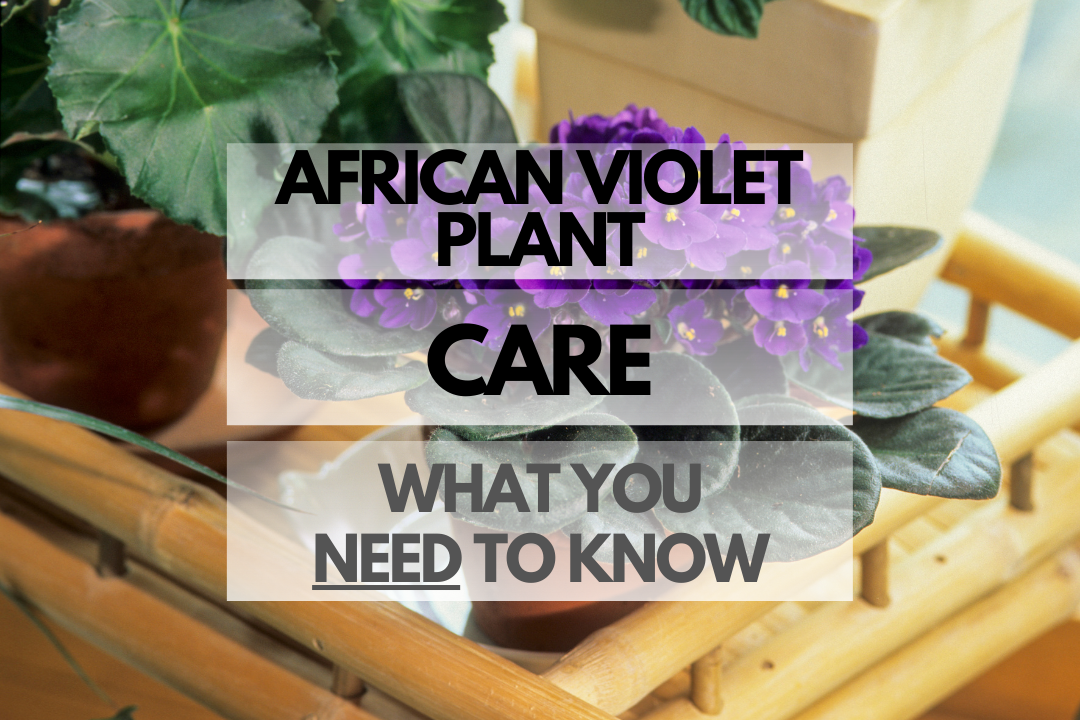African Violets are charming, colorful plants that can brighten up any indoor space. With their delicate flowers and compact size, they make a lovely addition to any home. In this care guide, we’ll cover everything you need to know about keeping your African Violet happy and healthy.
African Violet Care Guide
Quick Reference Table: Caring for African Violet Plants
| Aspect | Requirement |
|---|---|
| Light | Bright, indirect light |
| Water | Keep soil consistently moist |
| Soil | Well-draining, African Violet potting mix |
| Temperature | 65-75°F (18-24°C) |
| Humidity | High humidity, around 50-60% |
| Fertilizer | Use a balanced, water-soluble fertilizer |
African Violet Sunlight: Do They Need It and How Much?
African Violets thrive in bright, indirect light. Direct sunlight can cause their leaves to scorch, so it’s best to place them near a north or east-facing window. If natural light is insufficient, they can also be grown under fluorescent lights or LED grow lights.
African Violet Soil Tips
A well-draining potting mix designed for African Violets is essential for their health. These mixes usually contain a blend of peat moss, vermiculite, and perlite, which provides the perfect balance of moisture retention and drainage. Avoid using regular potting soil, as it can become too compact and hold too much water, leading to root rot.
African Violet Watering and Frequency
African Violets prefer consistently moist soil, but not soggy. It’s important to water them thoroughly and then let the top inch of soil dry out before watering again. To avoid damaging the leaves, use room-temperature water and water from the bottom by placing the pot in a saucer filled with water. Allow the plant to absorb the water for about 30 minutes before removing it from the saucer.
Pruning African Violet Plants Properly
Regularly removing dead leaves and spent flowers helps keep your African Violet looking its best and promotes healthy growth. Use clean, sharp scissors or tweezers to gently remove the unwanted foliage and blooms. This will also help prevent diseases and pests from taking hold.
Optimal African Violet Temperature: Can They Tolerate the Cold?
African Violets prefer temperatures between 65-75°F (18-24°C). They can become stressed if exposed to temperatures below 60°F (15°C) or above 80°F (27°C). It’s important to keep them away from drafts, air conditioners, and heating vents, as these can cause temperature fluctuations that can negatively affect their health.
Common African Violet Problems
Powdery Mildew
Powdery mildew is a fungal disease that can affect African Violets, causing a white, powdery substance to appear on the leaves. To prevent this, ensure proper air circulation and avoid getting the leaves wet when watering. If the problem persists, use a fungicide specifically designed for African Violets.
Pests
Common pests that can bother African Violets include mealybugs, spider mites, and aphids. To prevent infestations, keep your plant clean and inspect it regularly for signs of pests. If you do notice a problem, treat it promptly with insecticidal soap or neem oil.
African Violet Outdoors vs Indoors
African Violets are primarily grown as indoor plants, as they require consistent temperatures and high humidity levels that can be difficult to maintain outdoors. However, they can be placed outside in a shaded area during the warmer months, as long as they are protected from direct sunlight and temperature fluctuations.
| Indoors | Outdoors |
|---|---|
| Pros: Easy to control temperature and humidity; can be grown year-round. | Pros: Can enjoy natural light and fresh air during warmer months. |
| Cons: May require supplemental lighting in low-light areas. | Cons: Must be monitored closely for temperature fluctuations and pests. |
Best Pots for African Violet Plants
When selecting a pot for your African Violet, it’s essential to choose one with drainage holes to prevent waterlogging. A pot made from porous material, like terracotta, can help maintain proper soil moisture levels. Self-watering pots designed specifically for African Violets are also a popular choice, as they make it easy to maintain consistent moisture levels in the soil.
African Violet Plant Facts
African Violet Benefits
- Air purifier: African Violets can help remove pollutants from the air, contributing to a healthier indoor environment.
- Compact size: These small plants are perfect for adding a touch of greenery to limited spaces, such as apartments or office desks.
- Low maintenance: African Violets are relatively easy to care for, making them suitable for novice gardeners or those with busy lifestyles.
- Colorful blooms: Their vibrant flowers can brighten up any room and have a mood-boosting effect.
Growth Rates: How Fast Do They Grow?
African Violets have a moderate growth rate, typically reaching maturity within 12 to 18 months. Their flowers can last for several weeks, and with proper care, they can bloom continuously throughout the year.
African Violet Lifespan
With proper care, African Violets can live for many years, sometimes even reaching 50 years or more. However, most plants will have a lifespan of around 5 to 10 years.
Are African Violet Plants Safe?
African Violets are generally considered non-toxic to humans and pets, making them a safe choice for households with children, dogs, and cats.
African Violet Flowers
African Violets are known for their stunning, velvety flowers that come in a variety of colors, including shades of blue, purple, pink, red, and white. The blooms can be single, semi-double, or double, and some varieties even have ruffled or fringed petals.
African Violet Types and Varieties
Saintpaulia ionantha
As the most common African Violet species, Saintpaulia ionantha features dark green, fleshy leaves and single, blue-purple flowers. This species has been the basis for many hybrid varieties.
Saintpaulia rupicola
Saintpaulia rupicola is a small, trailing African Violet species with light green leaves and pale lavender flowers. It’s an excellent choice for hanging baskets or as a ground cover in terrariums.
Saintpaulia goetzeana
This rare African Violet species has small, heart-shaped leaves and distinctive white flowers with a blue or purple center. Saintpaulia goetzeana adds a unique touch to any African Violet collection.
African Violet Plant Pros and Cons
| Pros | Cons |
|---|---|
| Easy to care for | Can be sensitive to overwatering |
| Colorful, long-lasting flowers | Requires consistent temperature and humidity |
| Compact size | Can be susceptible to pests and diseases |
| Non-toxic to pets and humans | May require supplemental lighting |
African Violet Plant Cost
The cost of African Violets can vary depending on factors such as size, variety, and age. However, most African Violets are relatively affordable, with prices ranging from $3 to $20 per plant.
Where to Buy African Violet Plants
African Violets can be found at local nurseries, garden centers, and big-box stores like Home Depot or Lowe’s. They are also available for purchase online through websites like Amazon, eBay, and specialized African Violet retailers.
Is African Violet Plant Propagation in Water Possible?
Yes, African Violet plants can be propagated in water. To do this, take a leaf cutting with a short stem, and place it in a small container filled with water. Within 2 to 4 weeks, roots should begin to form. Once a healthy root system has developed, the cutting can be transferred to a pot filled with African Violet potting mix.
Additional Resources
- African Violet Society of America
- Scientific article on African Violet taxonomy
- African Violet books on Amazon
FAQ for African Violet Plant Care
Are African Violet plants toxic to cats?
No, African Violets are considered non-toxic to cats.
Are African Violet plants toxic to dogs?
No, African Violets are considered non-toxic to dogs.
Are African Violet plants toxic to kids?
No, African Violets are considered non-toxic to humans, including children.
How tall do African Violet plants get?
African Violets typically grow to be 6 to 8 inches tall, with some varieties reaching up to 12 inches in height.
Can African Violet plants live outside?
African Violets are not well-suited for outdoor living, as they prefer consistent temperature, humidity, and filtered light that can be difficult to replicate outdoors.
Are African Violet plants poisonous?
No, African Violets are not poisonous to humans or pets.
What type of soil do African Violets need?
African Violets prefer a well-draining, slightly acidic soil mix. A commercial African Violet potting mix or a combination of peat moss, vermiculite, and perlite can provide a suitable growing medium.
How often should African Violets be watered?
African Violets should be watered when the top inch of soil feels dry to the touch. It is important to avoid overwatering, as this can lead to root rot and other health problems.
How much light do African Violets need?
African Violets prefer bright, indirect light for at least 12 hours a day. A north or east-facing windowsill is ideal. Supplemental lighting can be provided with fluorescent or LED grow lights if needed.
In conclusion, African Violets are beautiful, low-maintenance plants that can brighten up any indoor space. With proper care and attention, these compact plants can provide stunning, velvety blooms and a touch of green for years to come. Whether you’re a novice gardener or an experienced green thumb, African Violets make a delightful addition to any plant collection.

